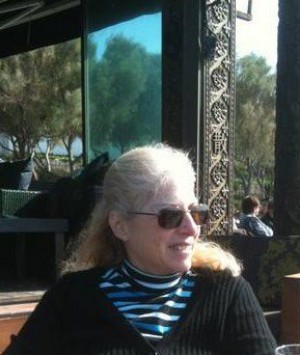I came to writing fiction via the long and winding road. Starting as a Physics major in college, I went on to graduate school at Columbia in Philosophy and then taught Philosophy in a major east coast university. During that time, I founded and directed a humanities program on Women in the...
show more
I came to writing fiction via the long and winding road. Starting as a Physics major in college, I went on to graduate school at Columbia in Philosophy and then taught Philosophy in a major east coast university. During that time, I founded and directed a humanities program on Women in the Suburbs. The time was the late seventies and this was a hot topic. A well-known literary agent suggested I write a book on the subject and I did. The book was never published, but that's when I knew I had to write.But the dream was deferred. I was the single mom of two young boys who needed a college fund and I was the only one who could provide that, so I went to law school and on to Wall Street for ten years. It was an enormous stretch for me, the daily long-hours in an office setting and the tedium of drafting contracts for--of all things--credit default swaps. (Had I known then where these things were taking us all, I'd have made notes for another book!)Once the boys were safely settled in college, I was free to leave Wall Street. I headed for Sag Harbor,a the tiny whaling village on Long Island's East End where I'd spent many a happy summer. A few months after arriving, I joined a writers workshop. The urges that had been building for years were finally free to find their way into action. I completed my first novel, "The Speed of Light," a year later."The Speed of Light" is based on a man who was a close personal friend, a prestigious New York ophthalmologist whose craving for recognition was bottomless. What it was, I eventually understood, was a yearning for immortality. That this highly educated man of science could not resist those ancient yearnings for eternal life struck me as both touching and comical. And so I crafted the character of Nathan Kline, a "blind" ophthalmologist who seems to have everything but somehow never has enough, a man readers always root for despite the futility of his goals.I packed the story with all the wonderful limericks and insights into music, art, and philosophy I had shared with my dear friend. My own years of study in science and philosophy came into play in a new and thrilling way to serve my fiction. I created Nathan's milieu of globe-trotting New York doctors and scientists, making them both pitiable and hilarious.After the book was published, I was dining at The National Arts Club with this ophthalmologist friend and a mutual friend of ours. Our mutual friend asked the doctor how it felt to have been captured so accurately and so humorously in a novel. Did he feel betrayed?My friend thought for only a moment. "No," he replied. "It's probably my best hope for immortality."My writing since the publication of "The Speed of Light," includes several short essays and stories--all of them absurdist--published in such literary magazines as The Indiana Review, Pendulium, The Battered Suitcase, Burning Word, The Texas Review, The Dan River Anthology and The Portland Review. A new novel is complete and seeking a publisher. Most important, I have completed a non-fiction philosophical memoir about Sabbath-keeping; in it, twenty fellow philosophers and I develop a totally unique and fresh view of what it means to keep the Sabbath and why we are morally bound to do this.You can learn more about "The Speed of Light" and my shorter works at my Authors' Guild site at susanpashman.com. You can follow my philosophical speculations and read my Letters from Yisroel on my blog at philosopha.net. Please leave comments; I'd love to chat with you.
show less

